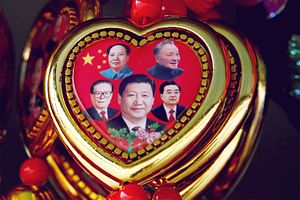During the Mao era, Communist Party Congresses happened infrequently and were largely irrelevant. Between the crucial years of 1956 and 1969, no Congress was held. Yet China during this time witnessed the Great Leap Forward, the years of the great famines, and Mao’s temporary decline in the early 1960s before the opening, dramatic years of the Cultural Revolution. Congresses were largely theatrical assemblies, convened long after policy had been agreed and implemented elsewhere – usually in the tiny inner circle around Mao himself.
In the era after 1978, one of the achievements has been to systemize Party Congresses, making sure they are held every five years. A corollary of this is that today, the Congresses are usually associated with some kind of meaning. This significance is found in two areas: leadership successions and formal confirmations of ideological position. The 14th Party Congress in 1992 saw market socialism written into the Party Constitution. The 16th in 2002 officially endorsed the “Three Represents,” which allowed non-state business people to join the Party, and also ushered in a transition between Jiang Zemin and Hu Jintao. 2007’s 17th Party Congress saw the affirmation of Scientific Development, Hu’s somewhat clunky catchphrase for a cluster of policy ideas. The 2007 Congress also gave clear hints as to who would be appointed as China’s leaders five years later.
The 19th Party Congress, likely to be held in the latter half of 2017 (usually in October, though in recent years the event has twice slipped into November) will therefore, if precedent is maintained, deliver two things: some clarity about what Xi Jinping’s leadership wants as their key ideological slogan and framework, and some notion as to who might step into leadership when Xi and his colleagues are meant to retire from their formal Party positions in 2022.

































